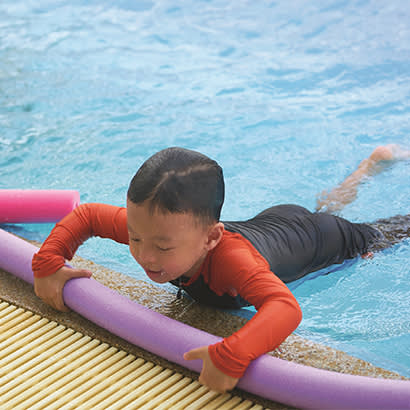
For an enhanced digital experience, read this story in the ezine.
This year’s swim season looked different than any other in recent history, with recreational water facilities across the nation either closed or operating at partial capacity with multiple safeguards in place due to the coronavirus (COVID-19) pandemic. The face of aquatics and its intersection with public health is changing rapidly as the role of public health in our country becomes paramount. Now, more than ever, we must work together to safely operate and regulate public aquatic facilities.
As park and recreation professionals, you have valuable insight to contribute about how to make aquatics healthier and safer for everyone. One of the best ways to share your expertise is through the Centers for Disease Control and Prevention’s (CDC’s) Model Aquatic Health Code (MAHC).
What Is the Model Aquatic Health Code?
The CDC’s MAHC is the only all-inclusive model pool code in the United States. Not unlike restaurant owners and operators who rely on health codes to guide them on food safety, those who work in or with public aquatic facilities depend on MAHC guidelines for providing a safe swimming environment. The MAHC is a set of voluntary procedures based on the latest science and best practices, which are known to help keep public pools healthy and safe for swimmers, visitors and staff. If followed, the guidelines in the MAHC can help reduce the risk for disease outbreaks, drowning, chemical injuries and other types of injuries at public pools across the country.
State and local government officials can reference some or all of the guidelines when developing or updating their own pool codes. Aquatics professionals also can refer to them when they are designing and building new aquatic facilities or considering updating their operation and maintenance policies.
The CDC releases an updated edition of the MAHC every three years, and the fourth edition of the MAHC is scheduled for release next summer. The process to update the MAHC is managed by a nonprofit organization, called the Council for the Model Aquatic Health Code (CMAHC).
What Is the Council for the Model Aquatic Health Code?
The CMAHC was created in October 2014, just after the release of the first edition of the MAHC, with a mission to help ensure a healthy and safe swimming experience for everyone. Specifically, CMAHC partners with the CDC to:
- Keep the MAHC up-to-date based on the latest science and best practices
- Promote voluntary adoption and use of the MAHC by state and local health departments, environmental health specialists and the aquatics industry
- Coordinate and prioritize research needs to help inform updates to the MAHC
- Educate partners and the public about the MAHC and its potential to make aquatics healthier and safer
Leading up to each new edition of the MAHC, aquatics, public health and environmental health experts have the opportunity to submit, comment on and vote on proposed changes through the CMAHC. Voting takes place following the CMAHC’s triennial Vote on the Code Triennial Conference, where proposed changes to the MAHC are presented, discussed and debated. The CMAHC uses the voting results to update the MAHC and submits those results to the CDC for consideration. The recommendations from CMAHC then go through rigorous vetting within several layers of the CDC resulting in the final, updated MAHC.
This year, some of the best and brightest minds in the industry have submitted 530 proposed changes to the MAHC for consideration. CMAHC is preparing to discuss and debate these changes at its first-ever virtual conference, October 21–23, 2020. CMAHC members will then have an opportunity to vote on the proposed changes from November 13 to December 14.
There Is Still Time to Get Involved!
The CMAHC offers opportunities for research, education and service year-round. Right now, our most urgent need is ensuring the next edition of the MAHC represents balanced and high-quality input from experts in our industries. The CMAHC values your background and welcomes your expertise. It will take all of us working together to ensure a healthier and safer swim experience for everyone. Learn more and get involved at the CMAHC website.
Kristie Riester is the Executive Director at CMAHC.

